Fiction
Nonfiction
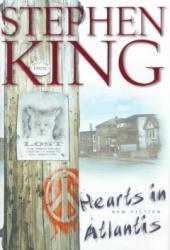
When I started Hearts in Atlantis, all I knew about it was that it was written by Stephen King and there was a movie of the same name that was likely based on it. As I began to read, I found myself enthralled by the coming-of-age story that presented itself. I had no idea it connected to the Dark Tower series, but that detail was almost ancillary, a neat little connection into a bigger picture. Having made it half-way through the book, I wanted to follow the main character’s development into adulthood but, then the story suddenly stopped.
Instead of following a story that had engaged me, the focus shifted to a completely different character, only loosely tied to the events in the first half of the book via one of the characters, who was now in college. Almost in a fractal fashion, this story was half as long as the first, with each successive story growing shorter and shorter, while still being connected to the first narrative in some way, no matter how loose that connection might have been. Finally, the story returns to the main character of the first section, but only stays long enough to say goodbye.
I absolutely loved the first story in this “collection,” and by its strength alone, I would recommend this to anyone. However, the second half of the book felt too disjointed to be interesting, especially with all the emotional energy I had invested in the first story. Sure, they were somewhat interesting in their own ways, showing the relentless march of time toward the modern era, but they simply lacked that fantastical little spark from the first story (incidentally, the same spark that was connected to the Dark Tower series).
A great story with almost unnecessary add-ons, I give Hearts in Atlantis 3.5 stars out of 5.
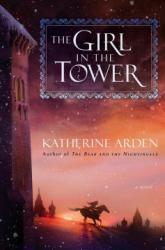
Katherine Arden's The Girl In The Tower is just as good, if not better, than the first book, The Bear and The Nightingale. Filled with more Russian Fairy tales, atmospheric literary prose, rich and strong characters, and the same enchanting setting of Medieval Russia, this book picks up right where the first one left off. It follows the story of Vasya, now a grown up woman she, instead of conforming to the role woman in her day usually play, of marriage or life in a convent, chooses instead a life of adventure. Leaving her home and traveling the vast Russian Wilderness while dressed as a boy, she soon is called upon to defend the city of Moscow and finds the threat greater and more deadly than she imagined. While fighting this threat, only she can stop, she is also forced to protect her secret as she comes upon her brother and attracts the attention of the Grand Prince of Moscow.
Part of what drew me to this book is the fairy tales, yes, but also the historical setting of Medieval Russia. Katherine Arden does a masterful job of weaving fantasy elements with real life historical details only a great historian would discover. Blurring the line between history, fantasy, and reality this book and, more importantly this series, is contemporary historical fantasy at its best. It is a sketch not only of real life in Medieval Russia, but also displays the power of story and demonstrates the importance of fairy tales and the lessons they can teach us.
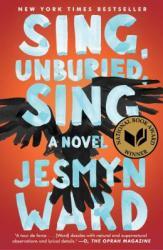
Jo Jo and his mother Leonie have been living on a farm in rural Missisippi for their entire lives. Jo Jo's father, Michael, has been in jail for drug related crimes, and thus most of Jo Jo and his sister Kayla's upbringing has been done by their grandparents: the gruff but ultimately loving Pop and the cancer-ridden matriarch, Mam. Everyone's world is about to be upended, though, as time grows near for Michael to get out of prison.
Writing any sort of synopsis for this book was particularly challenging, as there's not much in the way of plot. I don't mean that in a bad way. I sometimes love books that focus solely character development, and that is absolutely what this is. The writing is insanely gorgeous and it's obvious from the gruesome beginning scene as to why this won the National Book Award.
Ward manages to make almost all of the characters relatable or lovable even as they do and say and think terrible things. She absolutely captures some of the wonderfully horrible aspects of the human condition, and here is a lot to love in this book.
That being said, I did not much care for certain aspects of the audiobook. First, by the time I got the book, I had forgotten what it was actually about. I did not remember that ghosts were a part of the story and was really confused for the first part of the book (are these flashbacks? how is that character here? I thought he was dead?), but I eventually figured it out. For me, the ghosts detracted from the story and I could have done without that element, even though magical realism is often my jam. The biggest problem for me, however, was Rutina Wesley's performance (which, hilariously enough, is why I went for this in audiobook format - I liked her in the few seasons I watched of True Blood). It was over enunciated especially given that Leonie is from Mississippi, and I found her parts to be melodramatic as there were a lot of weird pauses and words said breathlessly. It just didn't work for me, and I wanted to skip all of Leonie's parts.
If you would like to read a gorgeously written character study/family drama with a compelling setting, then this is a great bet. Just read it, don't listen to it. 3 stars.
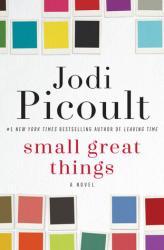
Here's the problem I have with Jodi Picoult. She always does some left field plot twist at the end of her books. I find it very annoying. This book is no exception. Something completely weird happens toward the end. Otherwise I enjoyed this book. Especially the Turk chapters. Fascinating and disturbing. Some of the book was heavy handed, but it's hard for a white woman to write about race, so she has my sympathy.
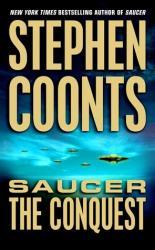
In this Sci-Fi thriller sequel to the first Saucer book in the series, Stephen Coonts brings back ex-air force test pilot Charley Pine, Rip Cantrell, and some new key characters. Charley Pine is hired to fly a french spaceplane to the moon, where she finds a french Millionare by the name of Pierre Artois. Charley soon finds out what Artois and his conniving wife Julie are actually up to. A massive Anti-Gravity gun is stationed on the moon, Pierre and his wife have been planning for years for their ruler ship over the earth. All the while this is going on, Rip's uncle, saucer expert, Egg Cantrell is kidnapped by mad scientist Newton Chadwick and is forced fly him to the moon in another saucer... Rip Cantrell and Ms. Pine find out about this and steal another saucer from a Smithsonian. Soon a fierce battle in outer space takes place. Who will come out on top? This sequel to the first Saucer book should definitely be on everyone's radar. Young or old, this book will leave you all wanting more more every page you turn over!
9th Grade Review
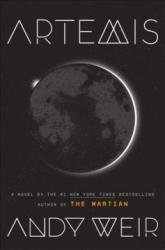
After reading Weir’s breakout work, The Martian , I looked forward to his next novel, Artemis, with rapt anticipation. The scientist in me appreciated how Weir made a realistic setting with realistic science an approachable and entertaining endeavor. The writer in me liked how he kept the tension throughout the plot of The Martian at a consistent level. Consequently, I had high hopes for Artemis and wondered if he could outdo himself (or at least match his previous success) considering how highly regarded The Martian ended up being for him.
Between the two books, Weir seems to have created a style that consists of three elements: accurate science, event-driven plot, and a racially diverse cast of characters. In Artemis, we now find ourselves on the moon, where a colony has been created and sustained for a few decades. Weir conveys the science involved with such a feat naturally and realistically. The exploration of this science is usually through the string of “oh shoot”
events that occur throughout the plot. Finally, with an Arab woman as the main protagonist of the story, supported by a Kenyan man, Ukranian scientist, and her father.
Despite these three elements creating an exciting story, the impact of Artemis felt less than that of The Martian. In The Martian, the driving force of the plot is the survival from isolation. Artemis has a different survival:
avoiding homelessness. Additionally, while Mark Watney was a scientist and astronaut who could “science his way” out of his predicament, Jasmine was a little more “working class” who seemed to jury rig stuff together just because that’s the only way she knew how. Of course, being more “working class,” the profanity seemed a lot more prevalent in Jasmine’s speech than in Mark’s. Both books had profanity; it just seemed like Artemis overdid it.
An Andy Weir book that doesn’t quite live up to The Martian, I give Artemis 4.0 stars out of 5.
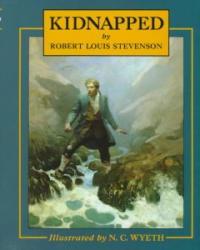
Another one of those “short adventures” that I have finally gotten around to reading, Kidnapped doesn’t suffer from some of the attributes that I found irritating about Captains Courageous . Sure, some of my qualms with Captains Courageous came from the audiobook itself but Kidnapped managed to have an easy-to-understand narrator as well as some sound effects and music that added to the experience of the book. As for the book itself, Kidnapped is pretty basic despite its title being only a small fraction of its plot.
Even despite its short length, a lot happens in Kidnapped. Aside from the obvious kidnapping, many events transpired because of it, including escaping and returning home. Of course, partly because of the short length of the book, the action moves at a pretty quick pace that was sometimes difficult to follow (which may also be an artifact of the time when it was written). The language in this book was easy to understand and is appropriate for young boys who want to dip their toe in the wide world of reading.
Part of me almost wanted the plot to focus more on the kidnapping since that’s what I expected the book to be about. Of course, perhaps my preferences are tainted by modern literature and the almost over-explanation of situations and scenarios. Kidnapped does a lot, but if it went more in depth with a few of the main points, it could have been a little more fascinating. As it is, the kidnapping itself happens so quickly that the reader hardly has time to understand what has happened before the main character has escaped. A little more time spent in the midst of the kidnapping would have added some excellent tension to an already adequate book.
A good short story for all ages, I give Kidnapped 3.5 stars out of 5.
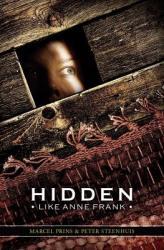
I really enjoyed this book. It is true stories of kids who survived the Holocaust. All of the stories have sadness in them and, all are incredible. I recommend this book to everyone who hasn’t read it yet. It is a great (and easy) read. If you looking for a good non-fiction book for school or just for fun, this is the book for you!
Reviewer grade: 8th

This is an amazing book! However, if you do not like the classic-book-writing style, this book might bore you out of your mind. You have been warned! But, if you don’t mind the style of writing, you will love this book! Besides from being a classic it is also a romance novel. I really enjoyed this book and I hope you will to!
Reviewer grade: 8th
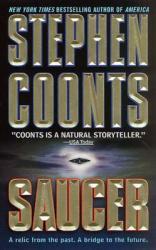
Saucer is an amazing Sci-Fi, Adventure, Thriller, and suspense book.
Stephen Coonts is a very talented Author who uses very good word choice. This is quite evident in his Saucer Trilogy, he seems to use the best wording at the best possible time. This book is definitely a great choice for all 13+ year old Audiences. Young Rip Cantrell is put under difficult circumstances numerous times. When his life and the life of Ex-Air Force Test Pilot Charlie Pine, and his grandfather are at stake, he makes a choice that will change his life from that point on. This Novel brings not only the thrill of life and death so many times, but amazing science fiction story line for us Sci Fi geeks. Obviously this book involves a saucer, Hence the name "Saucer", and this saucer appears to be lodged in that sandstone for over 140,000 years.
Now this saucer isn't made from man, as proven when Rip and his companions explore the object after days of digging it out. Over the course of this book, action escalates quickly, as Rip ends up across the world in Australia trying to save Charlie from the 2nd richest man in the world... Saucer is a stunning, action filled, adventurous book, at what might have been and what be. Go check this book out for yourself! I guarantee you will not be disappointed!
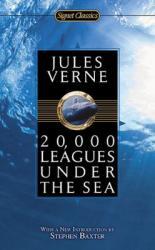
They're attacking our vessel Captain! Those savages want to kill us!", "Leave me Conciel! Save yourself my friend!". No doubt these few short phrases from the amazing novel strikes great interest in your mind. 20,000 leagues under the sea is an Adventure Fiction novel written by Jules Verne, and is by far 1 of the best books I have ever read. Professor Aronnax and his faithful servant Consiel board american frigate Abraham Lincoln to embark on a long journey back to France. On the way though, they spot a creature, a monster unlike anyone has ever seen up until that point. After a fierce battle with that monster Pierre Aronnax, Consiel, and a Canadian Harpooner are thrown overboard their frigate lost in the middle of the Vast Atlantic.
Later refuge is found aboard a metal island... Wait? Metal Island? In the middle of the atlantic? Something isn't right. Alast Captain Nemo and his crew surface the mighty vessel and capture Aronnax and his companions.
Sometime later Pierre and his companions alike, awake in a small, pitch black room, not knowing what had happened, or what is about to. Want to find out what happens next? Well go and find this book for yourself! Getting stuck underneath an iceberg in the antarctic! Battling 1 of earths mightiest creatures! Experience the great suspense, action, and adventure this novel brings to you!
Reviewer: 9th Grade
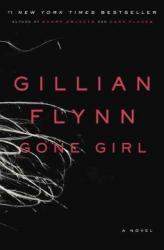
I loved reading this book. I loved everything about how it was written, how diabolical and shrewd the main character, Amy, was. Most of the book had me at the edge of my seat, eagerly lapping up the story as fast as I could. Then I got to the last quarter or so of the book. There came a point where Amy's plans and character changed a little to drastically to be consistent with who she was throughout the majority of the book. And after that, the quality of the writing also noticeably changed, as if a different author with a different writing style picked up where Flynn left off and finished the story from there. And THEN to add further insult to injury, the ending was just terrible, and somewhat unbelievable.
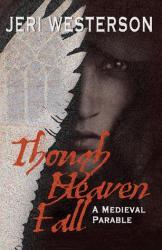
If you like castles, medieval stories and a bit of supernatural I recommend this you!
Set in the 13th century, this novel whisks you back in time. The misadventures of this "cripple" build up from a puddle to a daring rescuing of a wanted madman. While it may seem to drag out sometimes, its worth the wait.
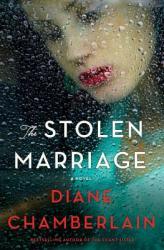
About halfway through this book, I wanted to throttle the main character and give up on the book as I saw it heading in an utterly predictable direction. Tess makes so many bad decisions that it is hard to feel sorry for her being in such a miserable situation. It was also difficult to read the characters' attitudes about racially mixed couples in a time and place when it was not only socially unacceptable, but illegal. However, I'm glad I stuck with it, as about 2/3 of the way through it turned around and ended on a very unexpected note, which I enjoyed!
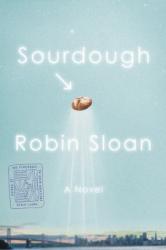
This book is.... very hard to categorize. I read it because I LOVED Mr. Penumbra's 24-Hour Bookstore, which was also kind of quirky. Lois, an engineer at a robotics company, is given a special sourdough starter by the odd owners of a small restaurant which closes unexpectedly and without much explanation. The starter has some unique properties, and Lois ends up becoming quite obsessed with its care and development, joining a very unusual and exclusive farmer's market to sell the bread she makes. An interesting tale of the melding of traditional skills and technology.
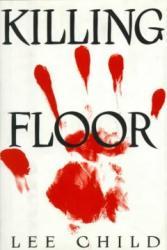
The first book in the Jack Reacher series is certainly a thriller, through-and-through. I certainly can understand its appeal, especially for male readers, since it has plenty of violence and sex while also exhibiting a number of action sequences. Consequently, it felt somewhat “pulpy” in that it was entertainment for entertainment’s sake. Sure, it’s a fun thrill-ride, but certain elements didn’t invest me in the characters. Jack Reacher himself is probably the majority of this issue, as he’s a drifter with little-to-no connections to anything or anyone, merely acting as a conduit to make action/killing happen.
As for the core mystery of The Killing Floor, it was a fascinating premise and had a slow unraveling to keep me intrigued along the way. This was undoubtedly the strength of the book since it was a unique and intriguing twist on a pretty common crime. With a small cast of characters, the plot stayed pretty focused, even if there seemed to be an unusual amount of coincidence that got it there. Even the characters themselves mentioned how coincidental it was, which merely made the fact of these coincidences more obvious. This detracted from my suspension of disbelief.
For the first book in a series, The Killing Floor does its due diligence of hitting all the tropes of the thriller genre and establishing Jack Reacher as a character who could do anything and be anywhere. I’m sure the other installments in the series took advantage of this flexibility, even if I haven’t read them yet. What was somewhat troubling was how the deaths of the people in the book felt real and had real implications and consequences, but Jack Reacher wasn’t affected by much of it at all. If anything, this book establishes Reacher as a sociopath or at least someone who exhibits many traits of one.
A book filled with everything that would appeal to “guys,” I give The Killing Floor 3.5 stars out of 5.
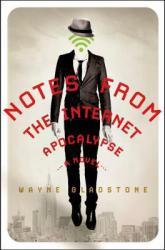
The main concept behind Notes from the Internet Apocalypse is interesting: one day, the internet just stops working. All the computers and phone lines still work, but the internet has just gone missing. The story that results should be considered a satire since I hardly believe people who have hidden behind a veil of anonymity for so long will do the same deplorable things in real life just to get their “internet fix.” Bringing the reality of our connected society to its extreme logical conclusion in a world without internet, Notes from the Internet Apocalypse is a harsh mirror of what we’ve become, even to the point of cringing at it.
I was a little taken aback by the amount of vulgar language, overt sexuality, and lack of common decency by the characters in this book. Of course, in a book about the internet, these types of people run rampant. If I were one to include animated gif memes in my reviews, I’d likely insert the Arrested Development “I Don’t Know What I Expected” one at this juncture. Yes, the internet is mostly pornography, and the rest seems to be filled with trolls who comment on news articles and YouTube videos, but I doubt these people would resort to acting out their internet lives in real life.
In the end, I had kind of hoped the subtle undertone of addiction was the focus of this book. With the main character who’s clearly alcoholic (even to the amusing point of calling Jameson’s Irish Whiskey “scotch”), and supporting characters who are either addicted to recreational drugs or sex, I wanted the satire of the book to focus on our addictive personalities as a culture, merely perpetuated and sustained via the ever-present internet. As it is, the ending wasn’t quite satisfying enough, providing a preachy bumper sticker to get readers to tune in to the next volume in this series.
An interesting concept that highlights the lowest common denominator, I give Notes from the Internet Apocalypse 2.5 stars out of 5.
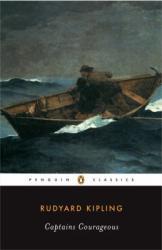
Captains Courageous is one of those classics that I just haven’t read, for whatever reason. I got the sense it was about being at sea, probably in the same vein as Moby-Dick or Treasure Island. And yet, I don’t know if I could tell you what happened in this book. Sure, the main character was picked up by a fishing vessel, and eventually, they learned how to deal with the harsh job of being a fisherman, but that’s pretty much it. The series of fishing adventures seem to be loosely tied together, and the overarching plot was weak at best.
Part of me wonders if the audiobook version of this classic was to blame. Not only did the narrator have a bit of an accent, but she did all the different dialects of the various characters based on their ethnic origins. While I would usually love this attention to detail, more than half the time, I could hardly understand what was being said. Furthermore, the amount of sailing/fishing jargon this book had completely lost me at times, as I have no experience or knowledge of this profession to understand what the characters are talking about.
The two aspects I did enjoy as part of this audiobook were the songs and the length. While I likely would have just read the lyrics of these sea shanties in the book with no understanding of how the tune would go, the narrator sang these songs, thus allowing me to appreciate them more than just the words would have provided. Secondly, while I didn’t understand what was going on for most of the time I was listening to this audiobook, it was still a short book. Therefore, I didn’t waste too much time listening to this book and could move on to different books that much quicker.
A classic that probably hasn’t aged well with time, I give Captains Courageous 2.5 stars out of 5.
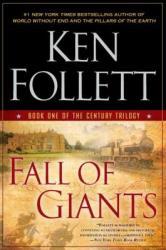
Fall of Giants is a long but worthwhile book to read. I "read" this via audio-book and enjoyed the narration very much. Ken Follett never fails to write in a historically accurate method and this is no exception. The introduction to the characters takes a bit of time to get through, but it's worth it due to the intricate nature of their lives and how they will intersect later in the book and the following related novels. This book combines elements of politics, revolution, war, love, social injustices and reforms, and insight into daily lives of people living in WWI era Russia, England, Germany, Wales and America.
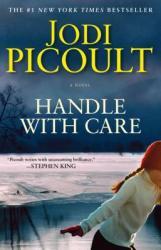
Jodi Picoult is one of my favorite authors, as her stories always involve a complex moral dilemma her well-developed characters are grappling with. This story in particular tugs at the heart strings of mothers who would do anything to protect their suffering child. I recommend this book to anyone who enjoys reading about the deeper, melancholy moments of life.


